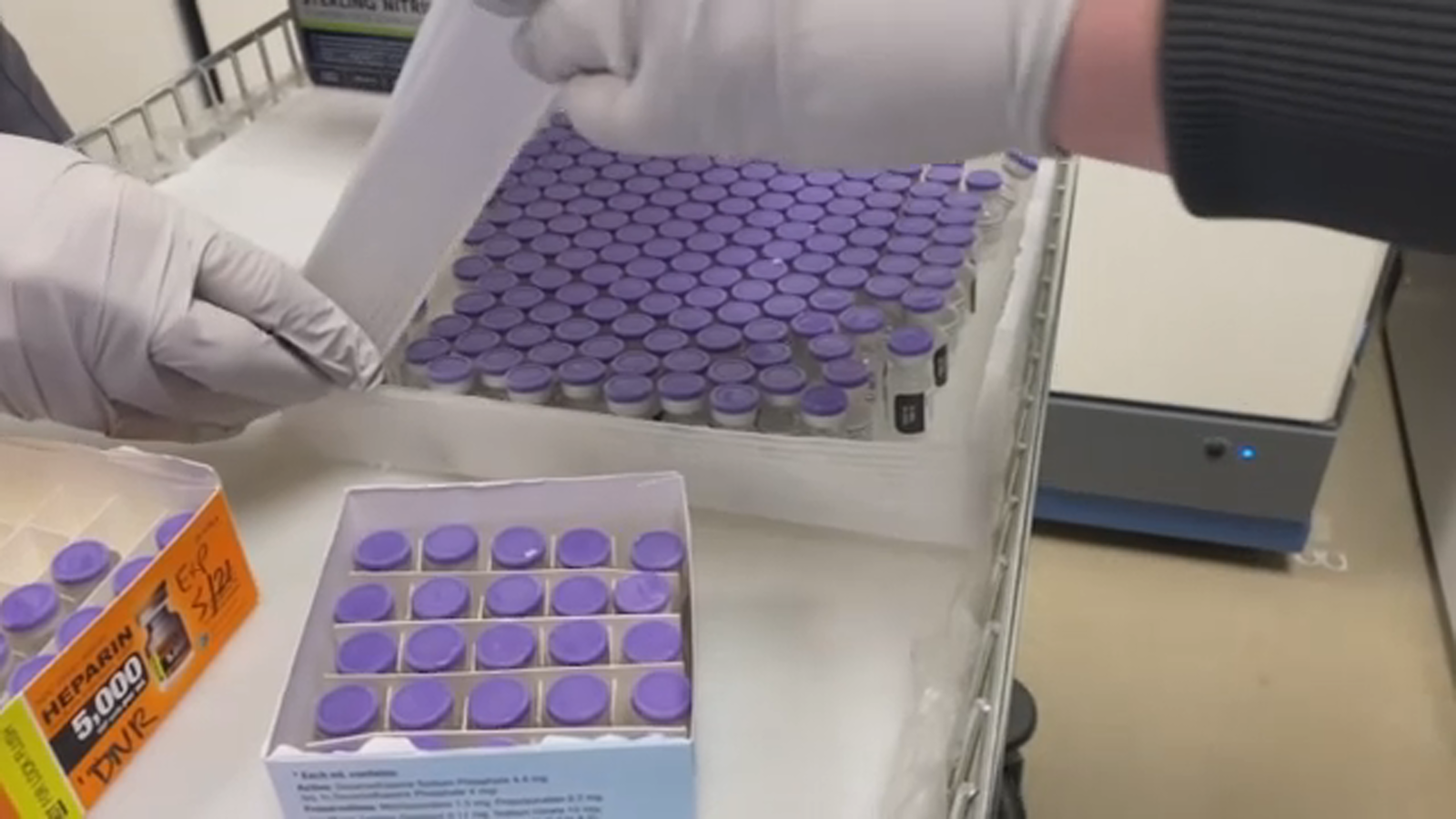Infection
New COVID-19 variant EG.5 emerges as cases of the virus increase in North Carolina
RALEIGH, N.C. (WTVD) — COVID-19 cases are increasing in North Carolina and across the country. The presence of the virus in wastewater has increased by five-fold since mid-June.
Wastewater monitoring is usually an early warning sign of an increase in cases and a rise in other metrics.
There are now 297 people hospitalized for COVID-19 across the state. This number has steadily increased each week since the beginning of July but this is still 80% fewer patients than the number admitted this time last August (1,054).
“I think it’s definitely a good sign. But we also don’t want to be complacent. And when we move into the fall and winter seasons, we really have the peak in respiratory diseases. We want to be sure people are taking the steps now to protect themselves so we don’t get into trouble,” explained Dr. Betsey Tilson, North Carolina’s State Health Director.
Emergency room visits for respiratory illness have also started to creep up in the last four weeks. The latest data shows that 4.1% of ER visits involved respiratory symptoms; this time last year that percentage was double (10.4%).
This upward trend is mirrored across the nation with COVID-19 hospitalizations increasing by 40% in July.
This uptick comes as a new COVID-19 variant, EG.5, is increasing across the U.S.
“It’s mutating because it’s probably easier to catch, easier to transmit,” explained Dr. David Wohl, an infectious disease expert at UNC Health.
The variant accounts for around 17% of new infections nationwide, according to estimates from the CDC. The latest strain of the Omicron family, XBB.1.16 accounts for about 16% of infections.
Tilson and Wohl said the presence of the variant may be partially to blame for the increase, but over the past few years, there has been a slight spike in infections this time of year.
“Since it’s been so hot and people have been really coming inside and collecting inside, that might be part of it and then waning of immunity, people being farther away from a past infection or farther away from their last booster,” said Tilson.
Despite the bump now, Wohl said EG.5 is within the Omicron family and doesn’t expect it to bring a massive surge.
“This new subvariant is very closely related to the variants that have been circulating for months. If you got COVID-19 within the last three months, you probably got something that’s extremely similar to this new subvariant. So I’m not too worried,” he said.
This week state health officials cautioned North Carolinians to prepare ahead of a respiratory illness season that may bring a high number of COVID, flu and respiratory illness cases.
Officials recommend people stay updated on COVID-19 boosters.
People who are eligible for a COVID-19 booster now are those whose last COVID vaccine was:
- Two months ago (people with compromised immune systems)
- Four months ago (people 65 years or older)
- Before September 2022 (everyone)
However, the U.S. is expected to release an updated version of the vaccine at the end of September that targets Omicron variants. Wohl said even with the new variant, the vaccine will still be effective, but people will have to choose when to get boosted.
“I wish that the new variant vaccine had been around now before kids went back to school. I think it’s unfortunate and that may cause us some trouble,” Wohl said.
He recommended people who are older, immunocompromised or planning travels or going back to school consider getting a booster now. He recommends all others who are up to date on their vaccines wait it out.
In addition to an updated COVID-19 vaccine, health experts also advise people to get their flu shots in September or early October. Individuals older than 60 years old should also ask their doctor about the RSV vaccine.
Here’s where to find a vaccination location: https://covid19.ncdhhs.gov/vaccines?click_source=alert
Beyond vaccines, Tilson said now is also the time to stock up on COVID-19 tests. The state still has at-home tests available for free.
Additionally, all the same precautions are encouraged.
“Making sure that if you’re sick, you’re not going out. You’re not sending your kids to school sick. Making sure we’re doing really good hand-washing and having those hand sanitizers, making sure if you’re sneezing, sneeze into your arm, not into our hands,” Tilson said.

